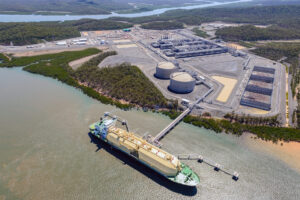Australia is a rich country making sub-par decisions

When former Treasurer Josh Frydenberg learned of Scott Morrison’s secret plan to spend a quarter of trillion dollars on nuclear submarines that, just two years earlier, the navy said they didn’t need, he said: “Everything is affordable if it’s a priority. This is a priority.”
To be clear, the former Treasurer is spot on. Australia is an incredibly rich country, our GDP per capita ranks 8th largest in the world. Despite the Coalition’s enormous borrowing during Covid, our public debt to GDP ratio remains way below the OECD average. Likewise, we are a low taxing country, even before we blow another quarter of a trillion dollars on the Stage 3 tax cuts. But, like kids who inherit billions from their parents, just because Australia is rich doesn’t mean we can’t squander it.
According to the world’s atmospheric scientists we are on track to heat the globe by just under 3 degrees by 2100. While the Albanese Government and the Coalition support the Paris Agreement target of limiting global heating to ‘just’ 1.5 degrees, we continue, with bi-partisan support, to open new gas and coal mines and spend more than $11 billion per year on fossil fuel subsidies.

Like buying submarines, tackling climate change isn’t about money. It’s about power, and sadly, it’s about foreign interests. Just as the big winners from our nuclear submarine purchases will be the UK and US, so too will the enormous profits earned from our expanding coal and gas exports flow overseas as well. Of course, it doesn’t matter where in the world our coal and gas burns, it will still cause the climate change that will wreck our reefs, fuel our fires, and feed our floods.
Why doesn’t Australia spend more money on urgent issues like climate change?
Australia is rich enough to do anything it wants, but it seems our democracy is not yet strong enough to do what our voters want.
Many in the climate movement believe the reason successive Australian governments continue to subsidise fossil fuels, rather than act urgently to reduce Australia’s contribution to climate change, is a lack of public awareness or information. There is no evidence to support such an analysis.
There was no public clamour for $368 billion worth of nuclear submarines at the time. Indeed, not even the former Foreign Minister Marise Payne knew about the possibility until after the decision was made. While we aren’t buying nearly enough nuclear submarines to make Australia ‘safe’ from a full-scale invasion, we are buying more than enough subs to destabilise and diminish our defence relationships with our neighbours. Of all the ways to create manufacturing jobs, it’s hard to imagine a project that would deliver less bang per billion than nuclear powered submarines we have never built before.
Buying nuclear powered submarines is a dumb idea, but former Treasurer Frydenberg was right: a country as rich as Australia can always afford to pursue its priorities.
It is time for those who want climate action or better conditions for people who rely on and work in the aged care and disability sectors let what scales, if any remain, fall from their eyes. If Australia abandoned Scott Morrison’s Stage 3 tax cuts and fossil fuel subsidies we could have both the submarines we don’t need and the climate action and care sector reforms we do need.
Australia doesn’t lack the money to reduce our emissions and be kind to the vulnerable. Our current crop of leaders simply lack the determination to solve the public’s priorities, in stark contrast to their willingness to solve the ‘shortage’ of nuclear submarines. As Josh Frydenberg clearly knew, budgets are all about democratic priorities, not economic ones.
Related research
Between the Lines Newsletter
The biggest stories and the best analysis from the team at the Australia Institute, delivered to your inbox every fortnight.
You might also like
Opening Remarks: Climate Integrity Summit | Richard Denniss
If we wanted to fix these things, we could. If you think that we need some complicated policy measure or some very expensive investment, you’ve been misled.
Who cares about national security?
In parliament last week, responding to the temporary blocking of a legislative favour to Santos, Foreign Minister Penny Wong berated the opposition. The bill – which did eventually pass – is designed to facilitate massive expansion of the gas industry.
2024 is Election Year
While we could be forgiven for thinking 2024 will be all about American democracy, this year is in fact a big one for democracies across the world, writes Dr Emma Shortis.



